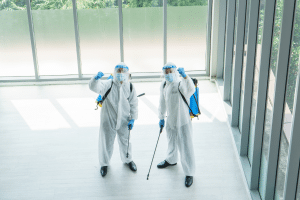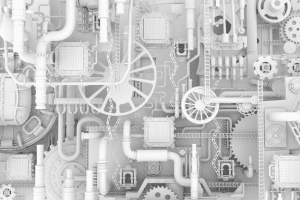Clean Rooms in the High-Tech Industry: The Standard of Technological Excellence
Clean rooms are a vital component of the high-tech industry, particularly in areas such as chip manufacturing, laser technology development, and the assembly of advanced electronic components. With the constant demand for high precision and relentless technological innovation, clean rooms provide the ideal environment for sensitive processes. This article explores the contribution of clean rooms to the high-tech sector and highlights their unique advantages.
What is a Clean Room?
A clean room is a controlled environment designed to ensure extremely low contamination levels. Every environmental parameter—from airborne particle levels to temperature and humidity—is rigorously monitored and controlled. Leading technologies include advanced air filtration systems (HEPA/ULPA), non-contaminating materials, and standardized operational procedures.
Importance of Clean Rooms in the High-Tech Industry
Chip Manufacturing:
Chips are microscopic components that require an entirely particle-free environment to ensure proper functionality.
Even microscopic contamination can cause defects in the production process.
Electronic Component Assembly:
Clean rooms are used for assembling high-tech products such as smartphones, computers, and smart car components.
This environment enables precision work without contamination that could compromise product performance.
Laser and Microscopy Technology Development:
Research and development in these fields require fully controlled environments to maintain high accuracy.
Optics Manufacturing:
The production of advanced lenses for cameras, telescopes, and navigation systems requires clean rooms to prevent surface contamination.
Advantages of Using Clean Rooms in High-Tech
-
Precision and Efficiency:
Full environmental control ensures high-quality, defect-free products. -
Compliance with Strict Standards:
High-tech companies must comply with quality standards such as ISO 14644. -
Enhanced R&D:
Clean rooms enable ideal conditions for scientific and technological research. -
Increased Competitiveness:
The use of advanced technologies strengthens the global standing of Israeli companies as industry leaders.
Advanced Clean Room Technologies for High-Tech
-
Smart Filtration Systems:
Advanced technologies for real-time air quality monitoring and optimization. -
Innovative Materials:
Materials that prevent particle emission and ensure a sterile workspace. -
Robotics and Automation:
Robotic systems reduce human contact, minimizing contamination risks. -
Artificial Intelligence:
Cutting-edge AI for smart monitoring and control of working conditions.
Challenges in Using Clean Rooms in Industry
-
High Costs:
Designing, building, and maintaining clean rooms requires significant investment. -
Skilled Workforce Training:
Operating in controlled environments demands specialized employee training. -
Ongoing Technological Upgrades:
Companies must constantly update systems to keep pace with technological advancements.
Conclusion
Clean rooms are an essential element of the high-tech industry, enabling compliance with the highest standards of quality and innovation. Through investment in advanced technologies and skilled personnel, Israel’s high-tech sector continues to lead globally and solidify its position as a hub of innovation. The future promises continued growth and improvement in this field, with the integration of cutting-edge technologies that support even more advanced manufacturing and research processes.










